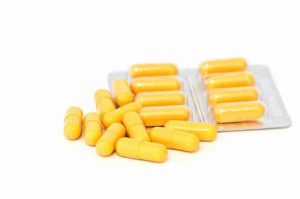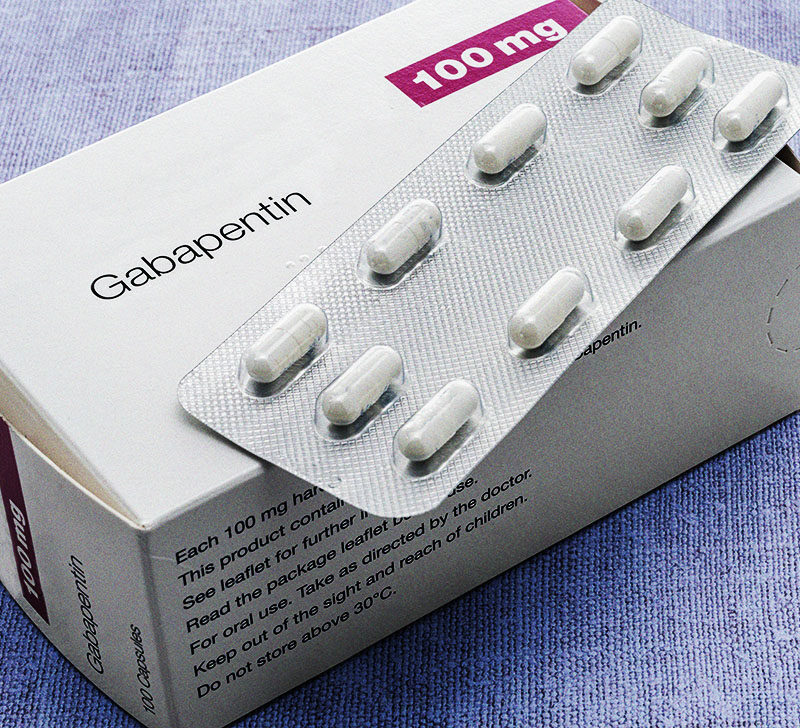Gabapentin, which is the generic name of the drugs Neurontin and Gralise, is commonly prescribed to treat seizures. It is also used for relieving a type of pain called postherpetic neuralgia, which is an intense pain in the nerves after a shingles infection. Additionally, the drug is helpful for individuals suffering from restless legs syndrome.
Gabapentin mimics the structure of a neurotransmitter, gamma-aminobutyric acid (GABA). GABA is an inhibitory neurotransmitter, which means it blocks the transmission of signals across your brain. In turn, GABA promotes relaxed and calm feelings, making gabapentin effective against seizures and nerve pain.
Gabapentin has been touted as a better alternative to opioid painkillers. However, gabapentin still has addictive potential. Abuse of this drug is commonly associated with a prior addiction to opioids.
The calming effects of gabapentin may lead to a euphoric high, which is what makes the drug addictive. If you happen to be addicted to this drug, you will certainly benefit from gabapentin detox.
Read on to find out if detox is already right for you.
How addictive is gabapentin?
On its own, gabapentin is not prone to abuse. But if you regularly take high doses of 800 milligrams or greater, you will get euphoric highs that will leave you coming back for more.
Recreational users will often take gabapentin along with opioids to produce their desired highs. Combining two addictive substances is more dangerous than taking just one, as the side effects tend to be more harmful and unpleasant.
How do I know if I have a gabapentin addiction?
A general sign of gabapentin addiction is finding yourself unable to function normally without the drug. That’s because the drug has made profound changes in the chemistry of your brain. If you try to go without taking gabapentin, your brain gets “shocked” and forces you to take the drug. If you don’t, you will get unpleasant withdrawal symptoms, such as:
 Anxiety
Anxiety- Agitation
- Fatigue
- Restlessness
- Insomnia
- Irritability
- Dizziness
- Sensitivity to light
- Headache
- Sweating
- Nausea
- Irregular heartbeat
You may experience any combination of these symptoms together. Once you do, they can become so uncomfortable that you would rather take more gabapentin just to make the symptoms go away. For this reason, quitting the drug on your own is hard once you become addicted.
An addiction to gabapentin is also marked by significant changes in your behavior and lifestyle. Here are just a few of them:
- Skipping work or school to make more time for taking gabapentin
- Poor performance at work or school
- Spending too much money on gabapentin
- Distancing yourself from friends and family
- Constantly denying that you have a problem with gabapentin use
- Seeking a secluded place when using gabapentin
- Neglecting hygiene and grooming
- Visiting different doctors to get additional gabapentin prescriptions (“doctor shopping”)
- Presenting fake symptoms to your doctor to get extra gabapentin prescriptions
- Seeking underground sellers of gabapentin to get the drug without a prescription
- Hanging out with a new set of friends (who are drug users themselves)
- Getting involved in criminal activity to get more gabapentin
- Finding it very hard to stop using gabapentin despite a genuine desire to quit
Once you or your loved ones notice these patterns of behavior, it is best to seek help. Gabapentin detox is the first step in treatment.
What if I take too much gabapentin?
Continuously taking the drug exposes you to the risk of an overdose. You may suffer an overdose either by taking gabapentin alone or by combining it with other substances. It is easier to overdose when taking more than one substance at a time, though. In some cases, overdose can even be fatal.
Here are some life-threatening red flags to watch out for:
- Muscle weakness
- Drowsiness
- Drooping eyelids
- Diarrhea
- Lethargy
- Sedation
If you or someone you know is experiencing these overdose symptoms, call for medical help immediately. Every second counts in saving a life.
What happens during gabapentin detox?
 Gabapentin detox is often the first stage in a formal rehab program. Its objective is to flush out all of the drug from your body safely. During this process, you may experience the withdrawal symptoms mentioned above. This is normal, though, and medical personnel will help you out over the entire detox process.
Gabapentin detox is often the first stage in a formal rehab program. Its objective is to flush out all of the drug from your body safely. During this process, you may experience the withdrawal symptoms mentioned above. This is normal, though, and medical personnel will help you out over the entire detox process.
To safely get yourself off the drug, medical personnel will recommend a slow taper rather than an abrupt stop. If you quit cold turkey, you risk having more severe and more painful withdrawal. At this point, your brain is so used to the presence of gabapentin that if you suddenly remove the drug, it will feel like a shock to your brain. As a consequence, the symptoms of withdrawal will feel worse.
In contrast, gradually decreasing your dose of gabapentin will give your brain ample time to adjust. This way, your brain will eventually get used to ever lower doses of the drug until it hits zero. If you get any withdrawal symptoms during this time, they will be more bearable.
In the event that you feel severe discomfort during detox, you may be given a few medications to ease the pain. That way, the process is made as comfortable for you as possible.
What’s next after gabapentin detox?
Gabapentin detox is always followed by behavioral treatments. These address the psychological damage done by the addiction. There is a wide range of effective evidence-based therapies, such as:
 Cognitive-behavioral therapy (CBT)
Cognitive-behavioral therapy (CBT)- Recreational therapy
- Family therapy
- Couples therapy
- Motivational enhancement therapy
- Animal-assisted therapy
- Talk therapy (psychotherapy)
- Individual and group counseling
While there are many kinds of behavioral therapies, all of them have one goal in mind: to give you the skills you need to avoid drugs and develop healthier habits. This process will take a while, but it is worth the time and effort.
At the end of this stage of treatment, you will be able to live a sober lifestyle once again. You will not need drugs to cope with stress and negative emotions anymore.
